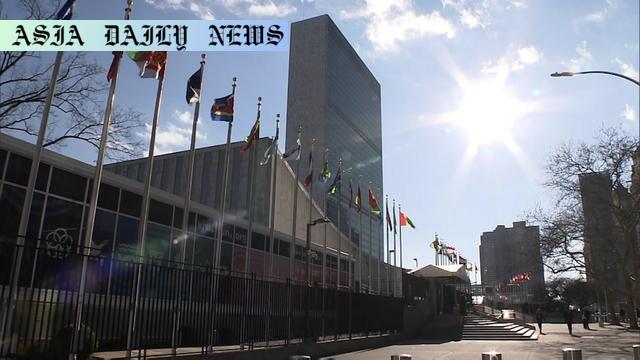UN relocation: Tokyo Governor Koike suggests relocating UN agencies to Japan, citing Tokyo’s safety and a weak yen as benefits.

Introduction: Tokyo’s Push for UN Relocation
Tokyo’s Governor, Koike Yuriko, has taken a bold step by proposing that parts of the United Nations relocate to Japan’s bustling capital, Tokyo. This suggestion was brought forth during her meeting with the United Nations Secretary-General, Antonio Guterres, at the UN’s New York headquarters. Amid rising financial pressures and a call for efficient cost management globally, Tokyo has presented itself as a viable hub to house essential UN operations.
Tokyo’s Strategic Advantages
Koike emphasized Tokyo’s unique benefits, including its unparalleled safety, advanced infrastructure, and the relative affordability offered by a weak yen. As the cost of living and personnel expenses in New York soar, these attributes make Tokyo an attractive destination for international organizations. Her advocacy builds on a vision she shared as early as June 2023, where she specifically identified groups like the UN Security Council and the World Health Organization as candidates for relocation to Tokyo. The sharing of these responsibilities across global cities could spread operational risks and improve efficiency.
A Global Context: Why UN Relocation is Gaining Momentum
The backdrop to Koike’s proposal is the UN’s ongoing financial restructuring plans influenced by internal and external pressures. President Donald Trump’s administration underscored the urgency of cost-cutting in international organizations. Specifically, the UN has started implementing cost-saving measures such as relocating parts of the United Nations Population Fund to Nairobi, Kenya, to address the high financial burden in cities like New York. These actions signify a larger strategy of decentralizing UN functions, which aligns with Koike’s proposal for Tokyo.
Opportunities and Challenges
While the relocation of UN functions could bring financial advantages and operational efficiencies, it does pose challenges. Moving such organizations involves logistical complexities, political negotiations, and addressing concerns around disrupting existing systems. Furthermore, Japan’s efforts to host UN bodies would require thorough proposals and international collaboration, as countries worldwide are vying for the same opportunity. Tokyo must ensure its commitments align with UN goals while respecting geopolitical considerations.
Conclusion: A Strategic Vision for a Global Future
Tokyo’s proposal to welcome parts of the United Nations can mark a significant step toward decentralizing global decision-making. Governor Koike’s efforts highlight Japan’s readiness to contribute to solving international challenges. Whether or not these functions relocate to Tokyo, the proposal opens critical conversations on improving cost efficiency and operational effectiveness in the UN. It may also set a precedent for other nations to offer innovative solutions to global governance challenges.
Commentary
Global Decentralization: The Need for Change in UN Functions
The idea of decentralizing the United Nations’ primary functions to different parts of the world is neither new nor radical. In fact, this evolution of governance is necessary in an increasingly interconnected global community. Tokyo Governor Koike’s proposal is a constructive contribution to this movement, emphasizing how cities like Tokyo can play a vital role in redefining the UN’s operational landscape. By moving these agencies to safer, more cost-effective, and better-equipped cities, we could unlock efficiencies that have long been entangled in bureaucracy.
Tokyo as a Global Model
Tokyo’s strengths are hard to ignore. As one of the safest cities in the world and a hub of cutting-edge technology, it offers an ideal platform for organizations like the UN to thrive. Its relatively low cost of living, coupled with a favorable exchange rate due to the weak yen, presents financial advantages for international organizations aiming to reduce overhead costs. For cities to partake in solving global issues, such proposals set crucial precedents.
The Road Ahead for Global Collaboration
Of course, implementing such a move would require concerted efforts from various stakeholders, including the UN, Japanese government, and local bodies. It invites an opportunity to rethink traditional governance models and champion global collaboration. Countries worldwide should view Tokyo’s proposal not as a competition but as a call for collective reform, ensuring that worldwide cooperation remains central to the UN’s mission. Koike’s bold initiative might just provide a blueprint for a more resilient and sustainable future for global governance.


